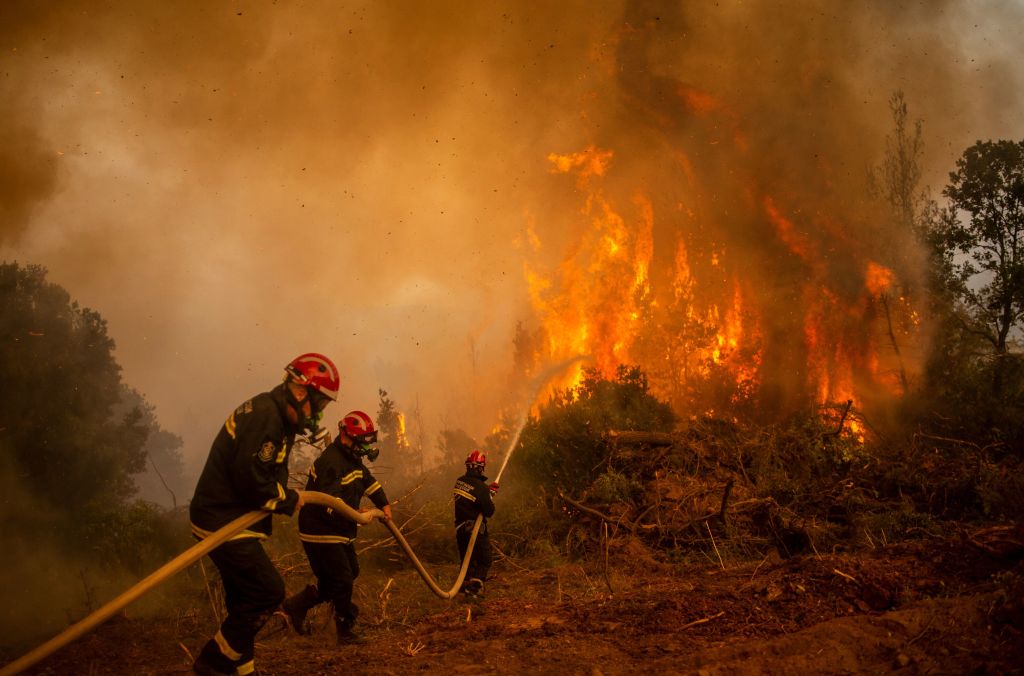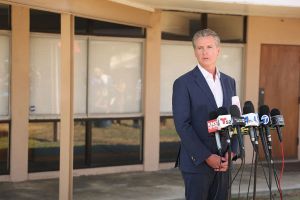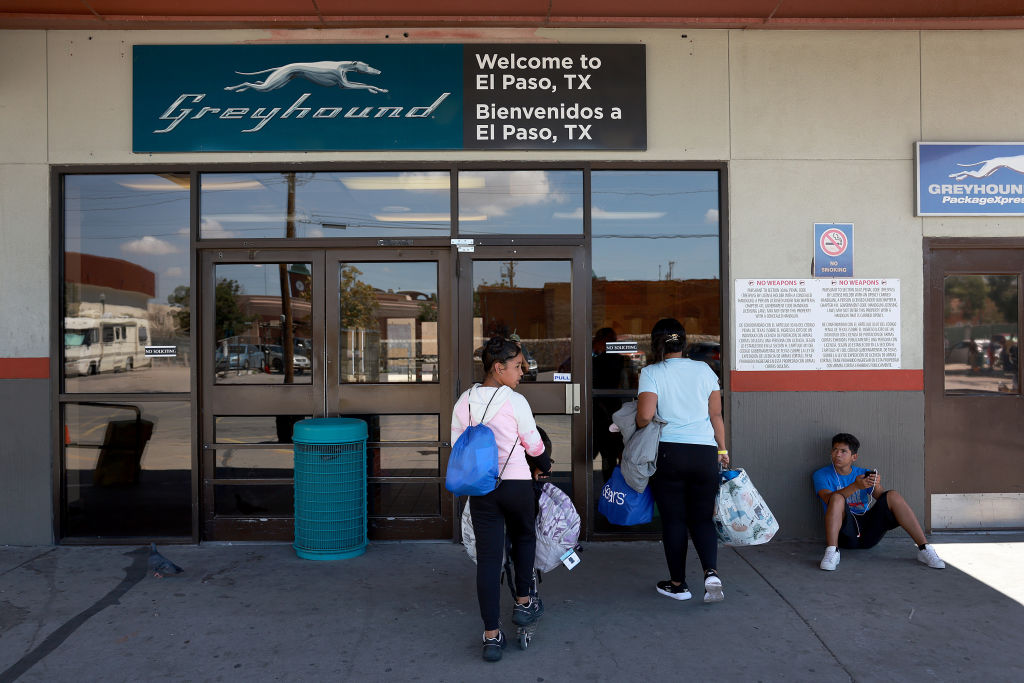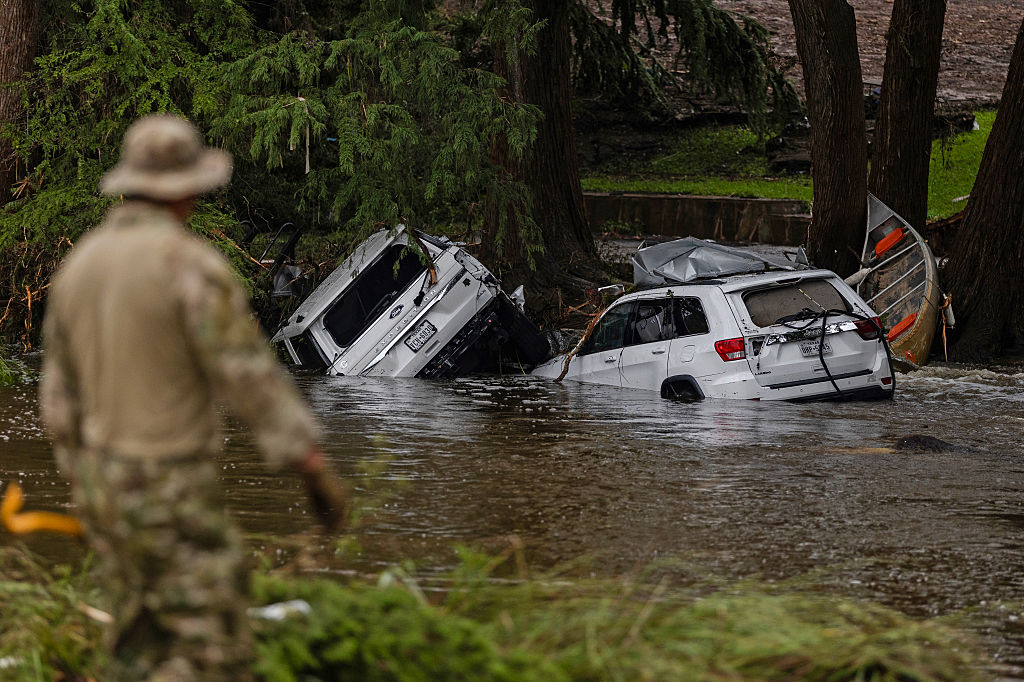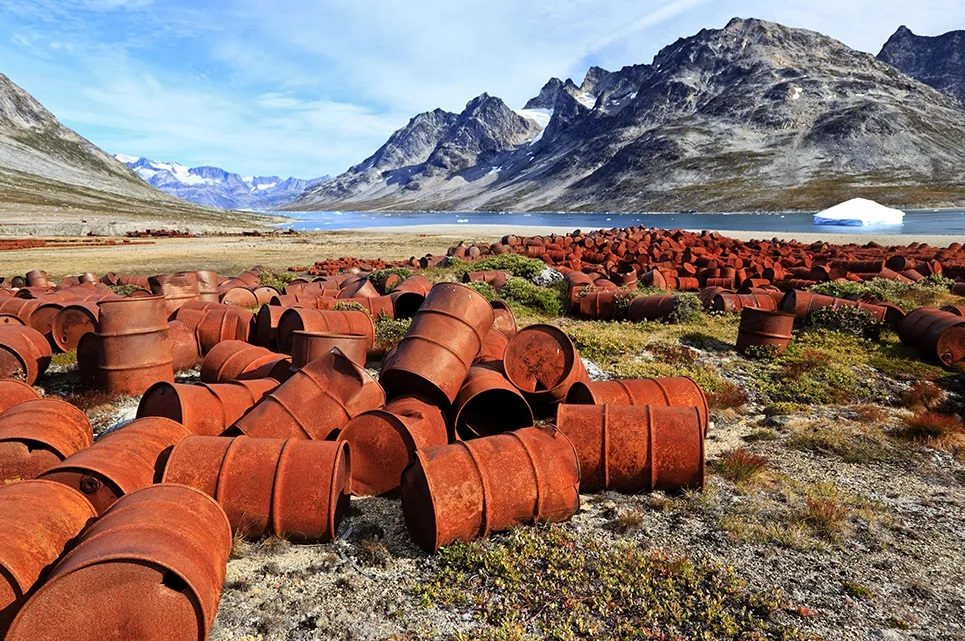The wildfires raging across Greece for what is by now more than a week, show no sign of abating. High temperatures continue in what is the country’s worst heatwave in almost four decades.
While no region of the country has been spared, the images coming from the northern part of Evia island are particularly striking. One, showing an elderly woman in despair — the grim atmosphere behind her painted dark red by fire and smoke, like a still from a post-apocalyptic film — became the prime example of what the new reality of extreme temperatures will look like. It was from Greece, but it could as easily have been taken in Turkey, Italy, Spain and other places around the Mediterranean Sea that are fighting the same battle.
But climate change is not the whole story here. While it definitely played a key factor in the catastrophe unfolding in Evia and elsewhere, this is also a story of deep structural and political issues that touch on the local and the European level. It is, at its root, the story of a state, and the union it belongs to, which failed to build with robustness in mind.
While experts are still assessing the damage, it looks like 10 to 12 percent – more than 65,000 hectares – of all Greek forests might have burned this summer. The damage in Evia alone looks likely to be bigger than 35,000 hectares.
The current government bears a lot of the responsibility. The Greek forestry agencies asked the government for €17 million ($20 million) this year to carry out preventive work to prevent fires. They only received €1.6 million ($1.9 million). The fire department entered the fire season understaffed by 4,000 firefighters. Their fleet is old and rusting. While a previous wildfire disaster in 2018 that left 102 people dead became a focal point of the New Democracy party’s campaign in the 2019 elections, once in power, they pardoned and even promoted some of the officials thought at least partly responsible at the time.
But the problems don’t start or end with Prime Minister Kyriakos Mitsotakis’s government. Since the late 90s, Greece has separated fire prevention and suppression. Fire prevention is the responsibility of the forestry agencies, while suppression has been assigned to the fire department. And while funding for the latter increased substantially over the years, the former was completely neglected. The has led to sealed off forests accumulating fallen branches, lacking paths and proper supervision for high voltage wires passing through, and a host of other issues that are simply too numerous to list. All of this was made much worse by the psychopathic EU-mandated austerity that took aim at the fire services, in a country with a permanent wildfire problem. These austerity measures were called ‘reforms’ at the time, but in the end this was a reduction in both available firefighters, equipment and expertise.
These issues have been highlighted many times over the years in a number of reports commissioned by parliament. After the 2018 wildfires however, the New Democracy party focused not on prevention or suppressing future fires, but in making sure that loss of human life was limited. While this is a noble aim, the result has been the issuing of a number of evacuation orders and (according to multiple reports) firefighters being told to not intervene unless lives are in danger. Experts and eye-witnesses suggest that the fires that surrounded Athens and those that are still burning through northern Evia could have been dealt with easily in their early stages if the authorities hadn’t focused so much on evacuations. The anger generated by these decisions is palpable and a clear political threat to the government.
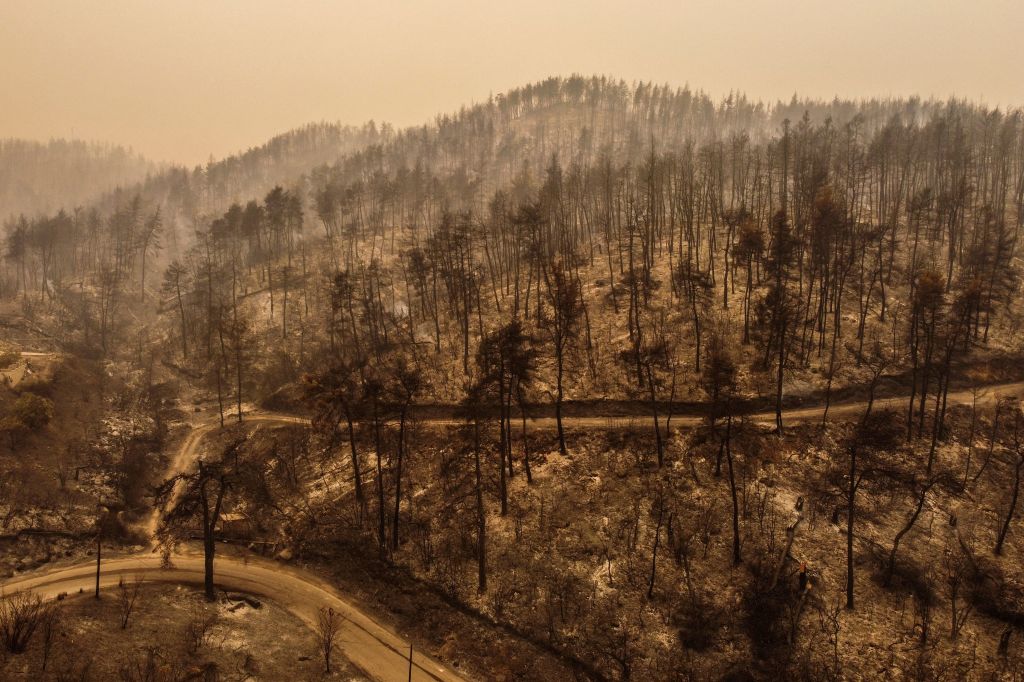
What’s worse is that by now it’s been established that in the cases where evacuation orders were ignored, locals managed to save their villages when others burned. This sets a very dangerous precedent, as people might be more encouraged to ignore evacuation orders.
While I wish that this was being written with the benefit of hindsight, the truth is the fires are still going. Firefighters, volunteers and locals are fighting bravely to save what they can. The PM in the meantime has announced a number of measures that aim to alleviate some of the pain people in Evia and elsewhere are now feeling. It’s too early to say if that will be enough. But it’s not too early to say that in the face of unfolding climate change, we must abandon the short-termism and political games that leave us unprepared in the face of catastrophe.
This article was originally published on The Spectator’s UK website.



